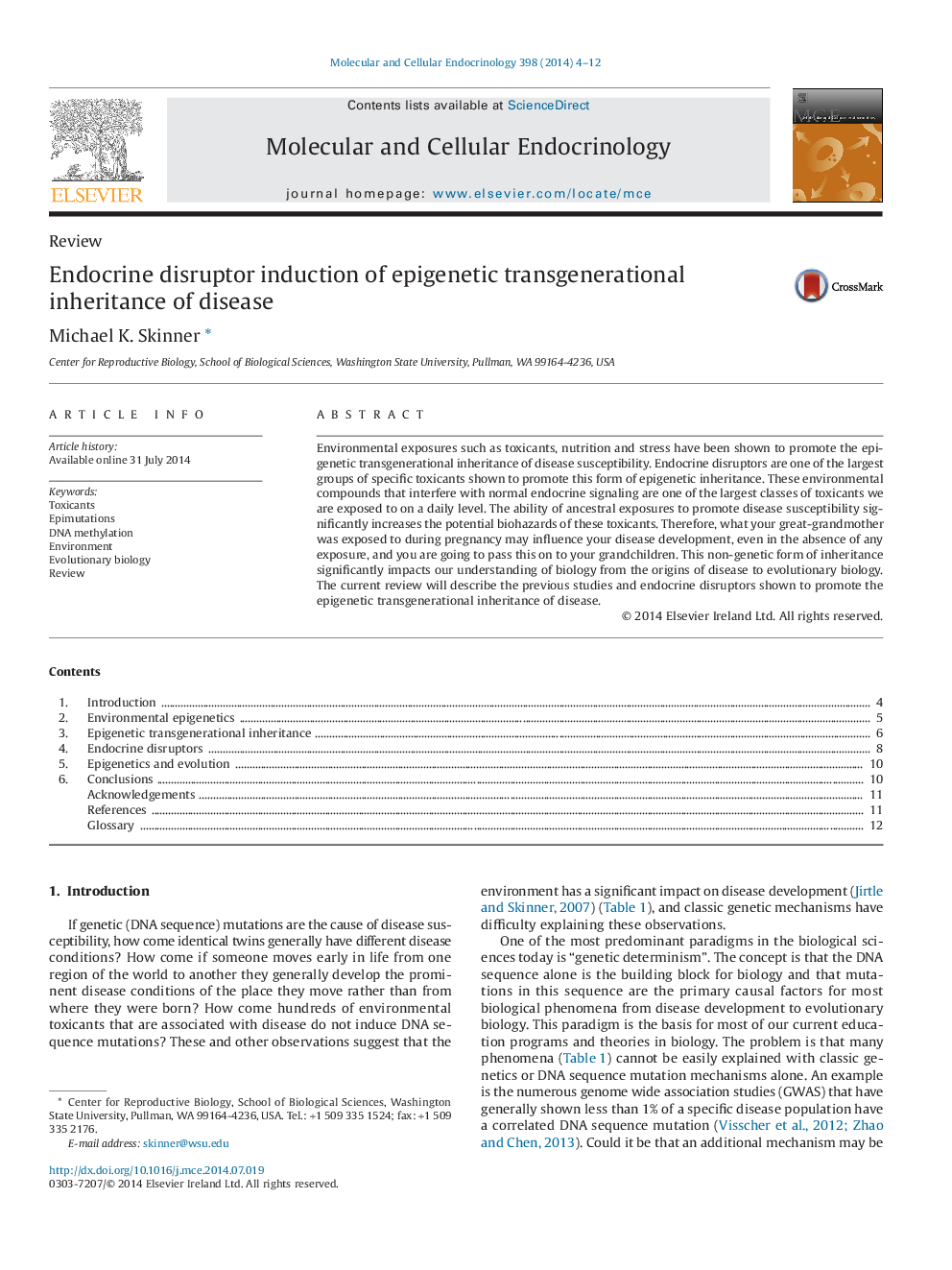| Article ID | Journal | Published Year | Pages | File Type |
|---|---|---|---|---|
| 2195912 | Molecular and Cellular Endocrinology | 2014 | 9 Pages |
•Epigenetic transgenerational inheritance is a non-genetic form of inheritance.•A variety of endocrine disruptors promote the epigenetic transgenerational inheritance of disease.•Environmental epigenetics provides a molecular mechanism for disease susceptibility and etiology.
Environmental exposures such as toxicants, nutrition and stress have been shown to promote the epigenetic transgenerational inheritance of disease susceptibility. Endocrine disruptors are one of the largest groups of specific toxicants shown to promote this form of epigenetic inheritance. These environmental compounds that interfere with normal endocrine signaling are one of the largest classes of toxicants we are exposed to on a daily level. The ability of ancestral exposures to promote disease susceptibility significantly increases the potential biohazards of these toxicants. Therefore, what your great-grandmother was exposed to during pregnancy may influence your disease development, even in the absence of any exposure, and you are going to pass this on to your grandchildren. This non-genetic form of inheritance significantly impacts our understanding of biology from the origins of disease to evolutionary biology. The current review will describe the previous studies and endocrine disruptors shown to promote the epigenetic transgenerational inheritance of disease.
